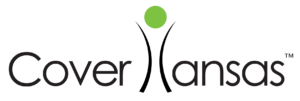How to Find Affordable Healthcare: Your Comprehensive Guide
Nov 01, 2023
Healthcare costs in the United States can place a heavy burden on individuals and families. Navigating the complex healthcare landscape can be overwhelming, but having access to affordable healthcare for you and your loved ones is essential. This article explores strategies and resources to help you find affordable health insurance options, medical expenses reduction, and healthcare savings. Discover tips on healthcare budgeting and finding affordable health insurance without straining your finances.

Understanding Healthcare Costs
Before we dive into exploring cost-effective healthcare alternatives, it’s crucial to grasp why healthcare costs in the United States can skyrocket. A handful of elements drive these steep healthcare costs:
Medical Advances: The United States stands at the forefront of medical innovation, consistently spearheading advancements in research and technology in the healthcare sector. However, it’s important to acknowledge that these cutting-edge developments often carry a significant financial cost.
Administrative Costs: The administrative side of healthcare, particularly dealing with insurance paperwork and billing, can greatly increase overall healthcare costs.
Prescription Drug Prices: Paying for prescription medications can often feel like a significant burden, especially considering the high prices associated with even the most common drugs.
Lack of Price Transparency: It’s not uncommon to only discover the price of a medical procedure or service after it has been conducted. This lack of upfront transparency can make it difficult for individuals to effectively manage their healthcare coverage expenses.
Health Insurance: Having health insurance is unquestionably important, but it often comes with a hefty price tag. The cumulative costs of premiums, deductibles, and copayments can escalate swiftly, putting a strain on personal finances.
Now that we’ve explored the key factors that impact healthcare costs, let’s dive into navigating this complex field to discover affordable healthcare options.
Evaluate Your Healthcare Needs
Identifying medical expenses for healthcare coverage requires a review of your healthcare necessities. Factors such as your age, current health condition, and lifestyle habits all contribute to the kind of healthcare coverage that would best serve your needs. Here are a few important things to consider:
- First and foremost, think about your age and overall health – if you’re generally healthy and young with no chronic illnesses, your needs will be different from someone with a pre-existing medical condition.
- Secondly, consider the size of your family. Are you looking for coverage just for yourself, or do you have dependents who also need coverage?
- Your lifestyle choices also play a vital role. If you’re health-conscious and maintain a healthy routine, you might not require extensive medical services compared to those who lead a less healthy lifestyle. Additionally, you have to consider healthcare planning for retirement.
- Last but not least, healthcare budgeting is very important. Be honest with yourself about what you can afford to spend on healthcare each month, considering both premiums and any out-of-pocket costs.
By considering your unique circumstances, you can effectively customize your healthcare decision-making to align with your needs and financial constraints. Each available option comes with distinctive attributes, and the most suitable one for you is largely dependent on your situation.
Exploring Healthcare Options
It’s crucial to understand that there aren’t universal solutions for healthcare coverage in the United States. A variety of health insurance plans are offered, each with a unique set of pros and cons. This spectrum of healthcare alternatives underscores the need for a thoughtful and personalized approach when choosing the healthcare path that best suits an individual’s or family’s needs.
Employer-Sponsored Insurance
If you’re currently employed, it’s worth noting that many employers offer group health insurance plans. These plans are typically all-encompassing and may also include contributions from your employer towards the premiums, making for more affordable healthcare coverage. This is a wonderful advantage, allowing you to prioritize your health without added financial burden.
Government Programs
As part of its commitment to providing accessible healthcare to all Americans, the government has implemented a range of healthcare programs tailored to the needs of specific populations. Among these programs are Medicaid and CHIP, which offer affordable coverage for low-income individuals and families, and Medicare, which provides coverage for individuals aged 65 and older. These programs are designed to provide comprehensive coverage and peace of mind to those who are eligible.
Health Insurance Marketplace (ACA)
Are you in need of health insurance? The Affordable Care Act (ACA) has established the health insurance marketplace that allows individuals and families to browse and purchase health insurance plans at reasonable rates. Depending on your income, you may also be eligible for health insurance subsidies that can significantly reduce your insurance costs, making it more accessible and affordable to all.
Health Sharing Ministries
Faith-based organizations offer a unique alternative to traditional healthcare insurance plans. Although these organizations may not provide the full range of services that a traditional insurance plan can offer, they can be a viable choice for financial assistance for healthcare.
Direct Primary Care
Direct primary care services are offered by certain healthcare providers, where patients can enjoy unlimited access to primary care services by paying a monthly fee. This is an ideal cost-effective option for individuals who do not require extensive specialist care.
Navigating Health Insurance
When it comes to your well-being, making informed decisions regarding health insurance is crucial. With so many options available, it can be overwhelming to select the right plan for your specific circumstances. That’s why it’s important to gain a solid understanding of how health insurance works:
Understanding Health Insurance Plans
Health insurance comes in different types with different healthcare provider networks and cost-sharing structures. These types include Health Maintenance Organizations (HMOs), Preferred Provider Organizations (PPOs), and High Deductible Health Plans (HDHPs). Health Savings Accounts (HSAs) are available for individuals who are enrolled in High Deductible Health Plans. HSAs help provide medical coverage for services that the HDHPs don’t cover.
Network Coverage
In-network providers have established agreements with your insurance company to provide medical care at negotiated rates. This can potentially save you a significant amount of money on your healthcare expenses.
Premiums vs. Out-of-Pocket Costs
When selecting a health insurance plan, the appeal of lower monthly premiums might catch your attention. However, it’s crucial to take into account the higher deductibles and out-of-pocket expenses that often come with such plans. It’s necessary to consider your budget and healthcare requirements before making a decision.
Prescription Drug Coverage
It’s highly essential to choose a plan that caters to your specific medication needs. Be sure to review the prescription drug coverage offered by any healthcare plan you’re considering. Keep in mind that not all plans provide coverage for all medications. .
Preventive Care Benefits
Most health insurance plans now cover free or affordable preventive care services. These services may include vaccinations, screenings, and check-ups, all of which could potentially detect health issues early on and decrease long-term healthcare expenses.
Reducing Medical Costs
Medical expenses can be a significant financial burden, even with insurance coverage. However, there are practical tips you can apply to reduce your healthcare costs and avoid unnecessary expenses.
One way to save on medication costs is to compare prices at different pharmacies and to opt for generic alternatives, whenever available. Another way to cut down healthcare expenditure is by regularly scheduling check-ups and screenings to detect any health issues early on. Early detection of illnesses can significantly reduce the need for costly treatments in the future.
If you have a chronic health condition, it’s essential to work closely with your healthcare provider to manage it effectively and prevent complications that could result in expensive hospital visits. Taking proactive steps to manage your health can prevent costly medical bills down the line.
In the event you receive a high medical bill, remember that you have the right to negotiate with your healthcare provider or the billing department. They may be willing to work with you on a payment plan or reduce the bill, so don’t shy away from asking.
Lastly, tele-health services are an increasingly convenient and cost-effective way to receive medical care for non-emergency issues. Many medical providers now offer tele-health services, which allow you to see a healthcare professional remotely, from the comfort of your home.
Seeking Financial Assistance
If you’re currently facing financial difficulties, rest assured that there are many programs and resources available to assist you:
- Medicaid and the Children’s Health Insurance Program (CHIP) are government programs that offer healthcare coverage to low-income individuals and families. Medicaid offers free or low-cost healthcare coverage to people who meet certain income and eligibility requirements, including families with children, pregnant women, and individuals with disabilities. CHIP specifically provides health insurance to children in low-income households, including those whose parents earn too much to qualify for Medicaid but still cannot afford private insurance.
- It is common for states to provide supplementary healthcare assistance programs to their residents who have limited income. These programs aim to offer necessary healthcare services and support to those who may not be able to afford it otherwise.
- Medical hardships can be daunting and financially strenuous. To support individuals facing these challenges, several non-profit organizations extend their assistance in the form of financial aid.
- Pharmaceutical companies often offer assistance programs that extend free or discounted medications to individuals who meet certain eligibility criteria.
The financial assistance you and your family needs to receive healthcare services can be found by exploring these options listed above.
Cover Kansas as an Option
If you’re a resident of Kansas seeking affordable healthcare coverage, you’ll want to know about Cover Kansas. This initiative operates statewide and is focused on helping Kansans access healthcare coverage through the Health Insurance Marketplace, which was established as a result of the Affordable Care Act (ACA). Cover Kansas provides a wealth of information and assistance to individuals and families looking for insurance options, subsidies, and enrollment support. So if you need help navigating the complicated world of health plans, you can count on Cover Kansas to provide the additional resources and support you need.

At HealthCore Clinic, you can speak with a Cover Kansas Navigator to discuss health coverage options and any questions you may have about the Health Insurance Marketplace.
Health Insurance and HealthCore Clinic
Financial concerns should not be a barrier to receiving high-quality healthcare services.
We accept KanCare / Medicaid, Medicare, CHIP and private insurance. We offer sliding scale fees and prescription assistance for those not covered by insurance.
HealthCore Clinic accepts all patients, regardless of their insurance status or ability to pay. We are a Federally Qualified Health Center (FQHC), which means we can offer a wide variety of services through a sliding fee discount. The sliding fee discount is available to all income-eligible uninsured or underinsured patients and is applicable to most services. The discount is based on annual household income & family size. To qualify for the sliding fee discount, you must fill out an application and show proof of annual income for all immediate family members living in your household.